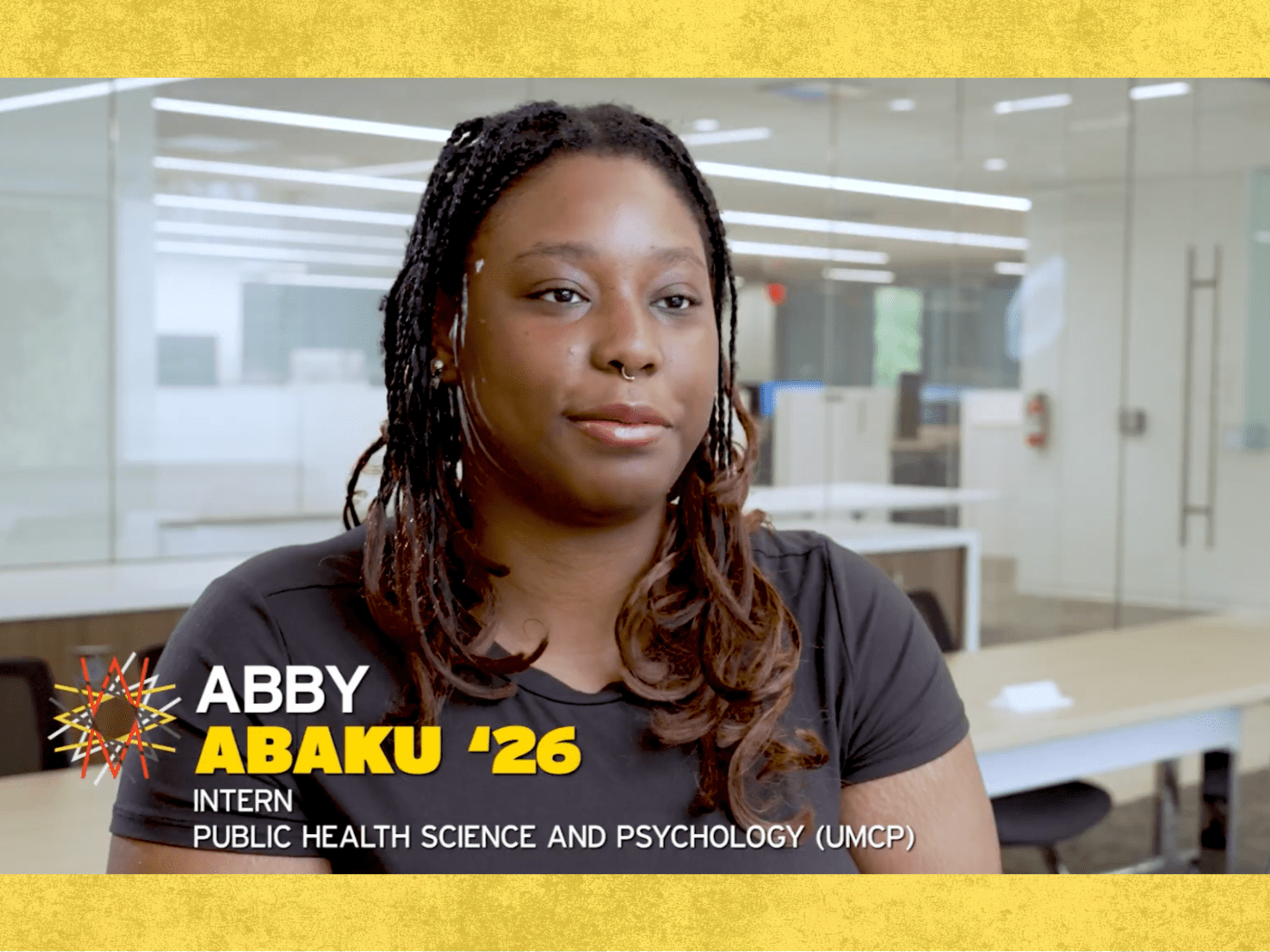
Public health and psychology student Olohitare "Abby" Abaku, ’26, spent her summer at the University of Maryland Institute for Health Computing (UMD-IHC) examining possible links between food deserts and diabetes among Maryland residents. For Abaku, such food-related health issues are close to home.
“When I moved to the States from Nigeria as a kid, I really noticed the different ways food is grown, harvested and eaten here. A lot of my family members developed health issues from American processed foods. I grew up seeing how inequality in food access and lack of healthy food impacts people,” Abaku said. “Just two years ago, my cousin was diagnosed with type 2 diabetes.”
When Abaku’s family moved from a Gaithersburg neighborhood with few nearby services like grocery stores, to Sandy Spring, both in Maryland, her understanding deepened of the structural inequities that can impact health.
“We suddenly had much more access to the things you need. The school was a lot better and the grocery stores were in walking distance,” Abaku said. “It was such a drastic change for me and it made me think about how many barriers exist between some people and good health.”
Granted a UM Scholarship in the summer of her junior year, Abaku began to work with the IHC to study the effects on public health of redlining – an illegal discriminatory practice where financial services such as loans were withheld from neighborhoods where racial and ethnic minorities lived.
More recently, Abaku worked with experts like Dr. Rozalina McCoy, an associate professor of medicine at UMD’s School of Medicine, who leads IHC’s interdisciplinary research efforts to improve health and well-being in Maryland and beyond. Their team used a large-scale geolocational diabetes registry to see how proximity to health care, food, and other essential community resources impacts patients’ ability to properly manage their diabetes.
“That's what the IHC let Abby do. To have the computer resources, to be able to run those models and assess those relationships,” said McCoy in a recent video about the project.
“Abby's research is really important because it's going to help healthcare professionals understand the realities that our patients deal with every day.”
I want to be able to target problems at the root rather than working with the outcome. By doing research I can look at why things are happening so we can stop them before they start.
From preliminary analysis, Abaku and her team found a strong correlation between the distance to a grocery store and the ability of someone living with diabetes to maintain glycemic control and thus avoid other health complications. The team also noted that underserved and predominantly low-income communities are more likely to be food deserts, exacerbating health discrepancies.
Based on her project’s results, Abaku is also creating a tool to help clinicians create personalized treatment plans for diabetes patients, taking into account the real access – or lack of access – in a person’s life.
As graduation nears, Abaku continues to set her sights high. Interested in pursuing a research career, she plans to continue her studies with a doctorate in psychology and explore the “why” behind public health inequities.
“I want to be able to target problems at the root rather than working with the outcome. By doing research I can look at why things are happening so we can stop them before they start.”
At the upcoming 2025 American Public Health Association Conference, Abaku will present her research from IHC that maps health inequalities and their impact on diabetes in Maryland at the Delta Omega poster session.